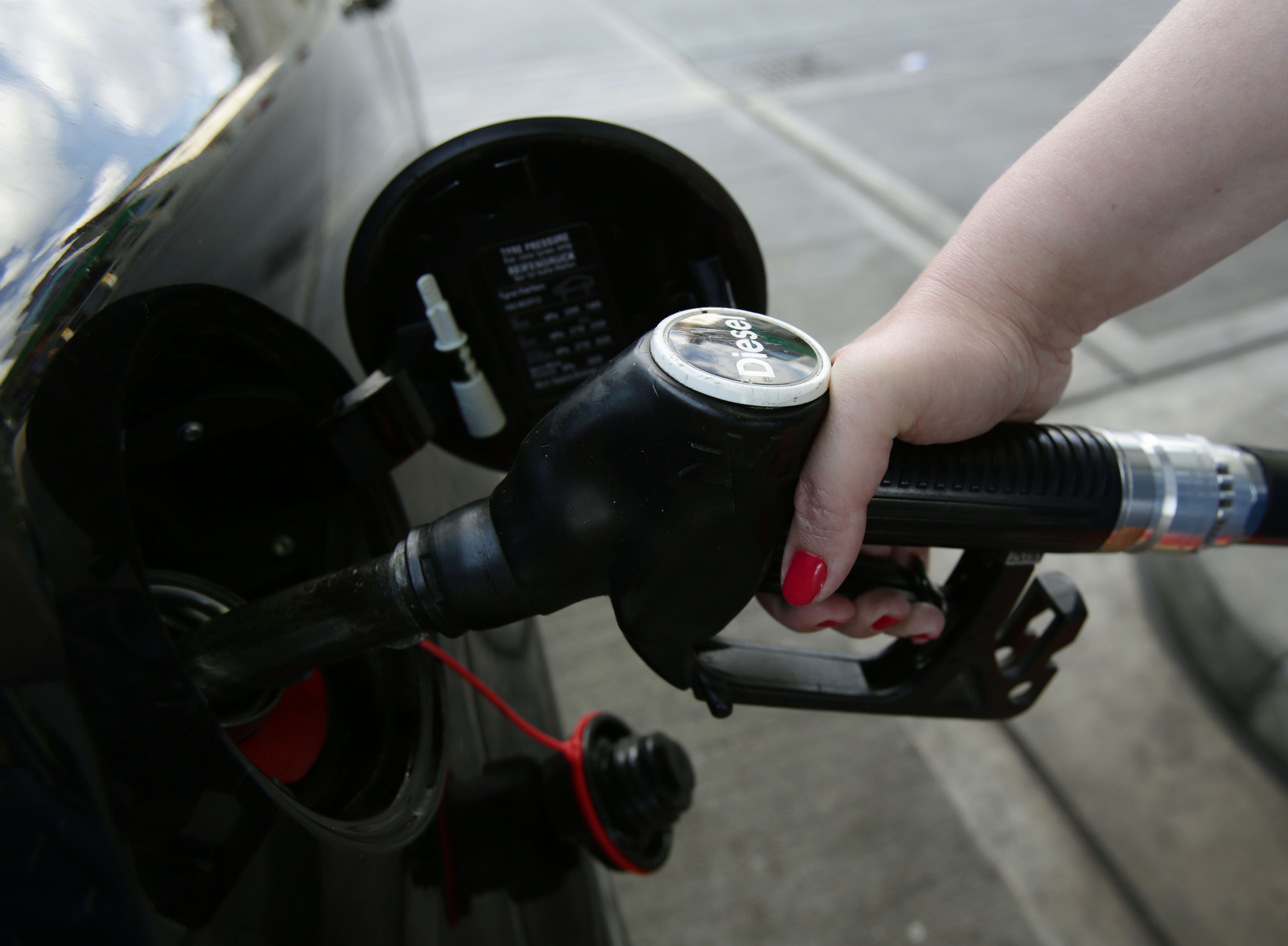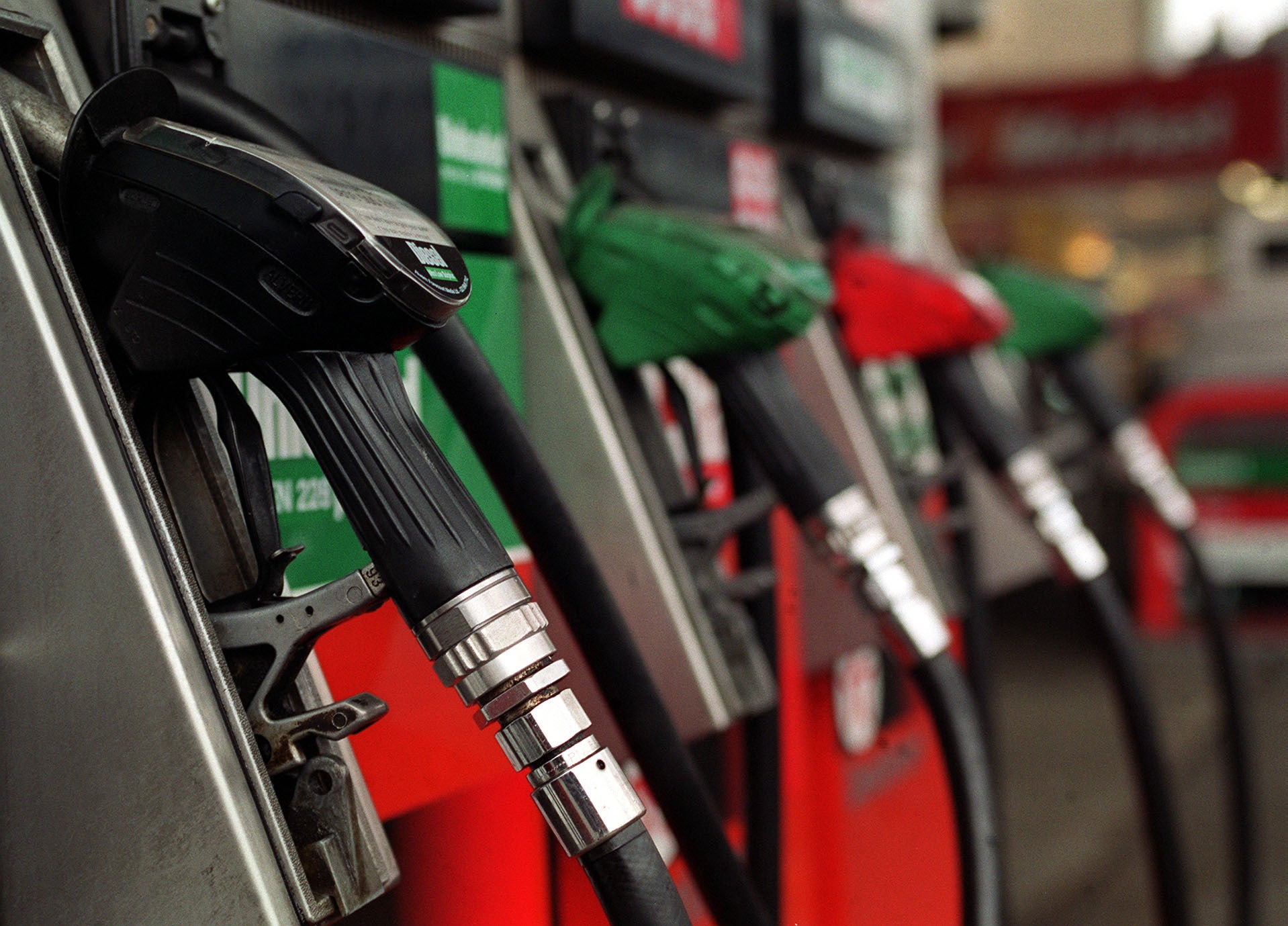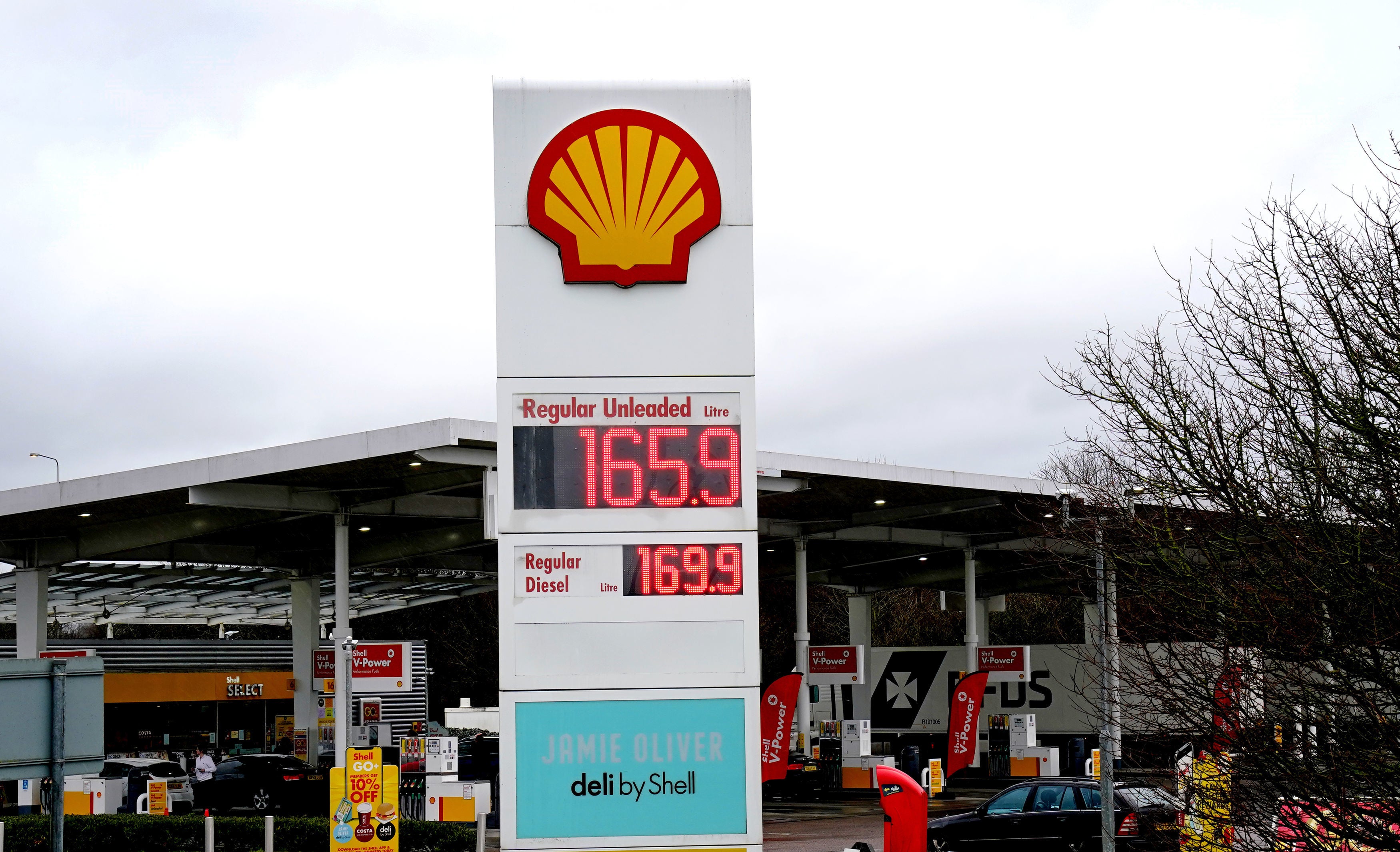Petrol firms ‘profiteering from energy crisis’ by failing to pass on fuel duty cut
Accusation comes as diesel prices hit new record high

Petrol companies have been accused of profiteering from the energy crisis as fuel prices reach record highs.
Chancellor Rishi Sunak announced a 5p a litre duty cut lasting a year in his Spring Statement to ease the burden of rocketing prices for motorists.
However, fuel retailers were found to have failed to pass on nearly half of it, taking an average of 2p more in profit for every litre sold than they did before March, according to research from insurance company RAC.
Some three and a half billion motorists are estimated to buy fuel each month seeing petrol companies making some £7m in extra profit.
RAC looked at the average wholesale price of petrol and the retail price on forecourts before and after Sunak’s announcement and found profit margins for fuel companies had risen.
In the month leading up to the tax reduction, the average margin for unleaded was 9p a litre for petrol, and 6p for diesel.
After the cut came into effect, this rose to 11p for unleaded, and 8p for diesel.

Fuel duty is applied to purchases of petrol, diesel and other fuels for vehicles and domestic heating and, until March, had been frozen at 57.95p per litre for over 11 years.
RAC spokesperson Simon Williams said: “RAC analysis of fuel margins shows retailers – for whatever reason – are taking on average 2p a litre more than they were before the chancellor’s 5p duty cut.
“The average margin for petrol is currently 11p a litre and for diesel 8p whereas in the month leading up to the duty cut it was 9p for petrol and 6p for diesel. To put this into perspective the long-term average margin for unleaded is 7.5p and for diesel 8p.”
He added: “While March’s 5p-a-litre duty cut is making a difference, it’s not proved to be helping as much as the government had hoped, which means there’s little to prevent prices going even higher.”
Petrol Retailers Association, which represents independent fuel retailers, said the RAC’s figures did not tell the full story, arguing the there were additional costs companies faced that had not been acknowledged.

Its executive director, Gordon Balmer, said: “Comparing pump prices against wholesale prices only gives a partial picture. To provide a comprehensive analysis there needs to be an account of the oil companies’ charge for the storage and delivery of fuel, card interchange costs, development fuel costs and the decrement in margin, particularly on diesel derived from significantly lower returns on fuel card transactions.
“Once these additional expenses have been considered alongside the volatility of product prices, our members’ margins are often not enough to cover operating costs.”
The chancellor’s duty cut did not go far enough to help motorists given the increasing price of fuel, he insisted, calling for a bigger reduction.
“If the government wants lower pump prices, they should follow the example of other European countries and reduce fuel duty by more than 5ppl, as we have told the chancellor in numerous pieces of correspondence,” Mr Balmer said.
“5p per litre did not represent a substantial enough cut to ease the burden of rising prices on motorists. While the chancellor was announcing it, oil prices rose and effectively cancelled out the reduction. In addition to this, sales volumes of petrol and diesel are still not back to their pre-pandemic levels. Supermarkets and independent fuel retailers are competing vigorously with each other on the thinnest of margins.”
But a Tory MP accused petrol companies of “fleecing motorists” and capitalising on the war in Ukraine.
Robert Halfon told The Times: “These companies are fleecing motorists and seem to be the only people doing well out of the war in Ukraine and the cost of living crisis.
“It is time the government set up a pump-watch regulator.”
The findings come as the price of diesel hit a new highs of 179.7p on Monday, up from 178.4p a week earlier.
The price of petrol rose to 166.8p, half a penny off the record set in March, with RAC saying it was “inevitable” the cost will exceed this in the coming days.



Join our commenting forum
Join thought-provoking conversations, follow other Independent readers and see their replies
Comments